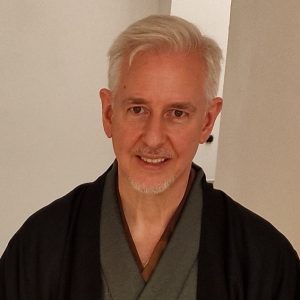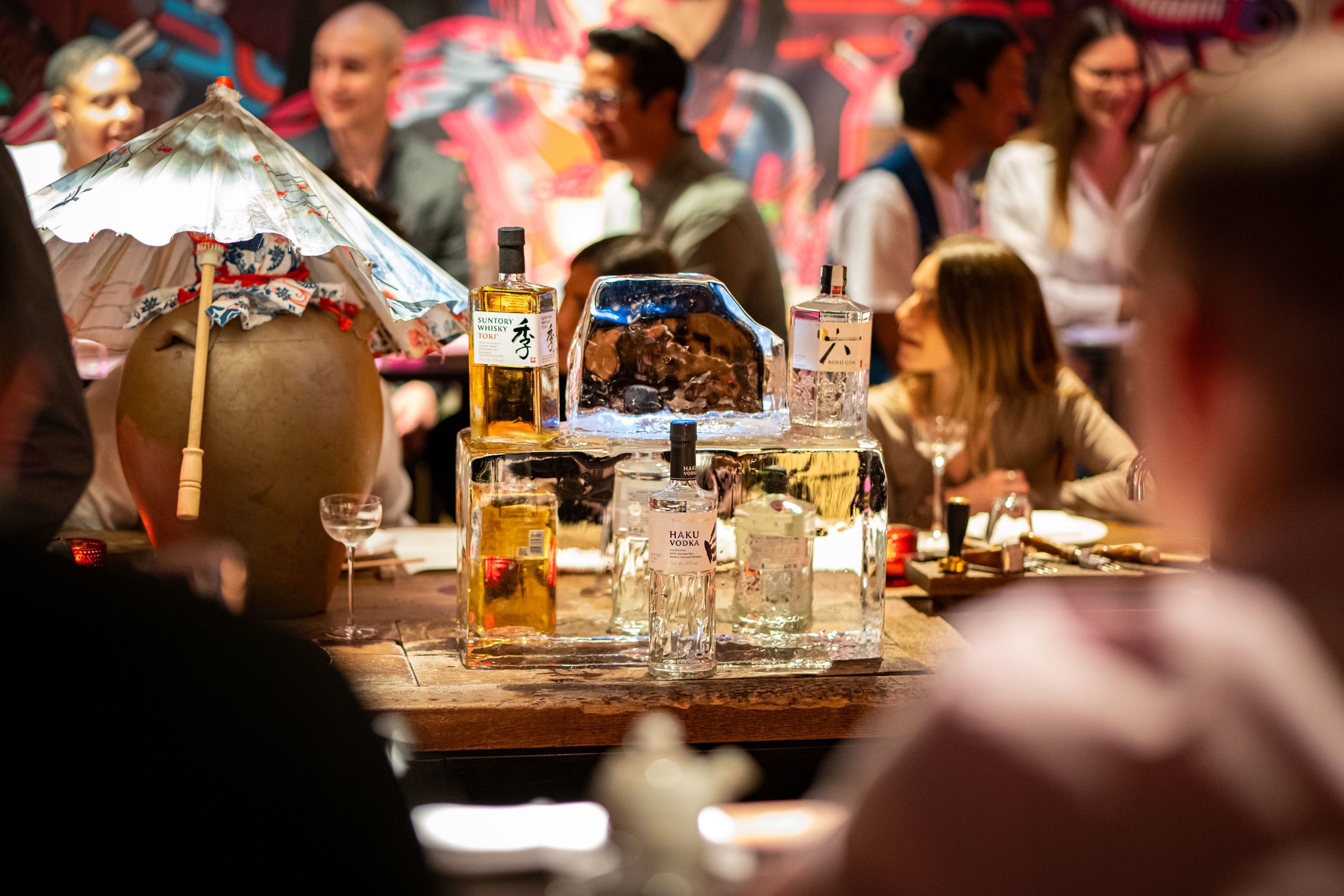The Chadō tea ceremony is perhaps one of the most recognisable facets of Japanese hospitality. This year’s House of Suntory’s DOJO programme students have been learning about the practice and its applications from a true Master – Kevin O’Duffy

House of Suntory’s DOJO Programme, which has this year immersed a group of top bartenders in the global hospitality arena, would not have been without an examination of the Japanese tea ceremony. This session was led by Kevin O’Duffy, who originally hails from London, the capital of a country with its own passionate appreciation for tea. As a practitioner and licenced instructor of the Urasenke tradition of Chadō – the Japanese Way of Tea – the DOJO students could not ask for a better tutor.
BLUK: Quick Google search results describe Chadō as the ‘Japanese Tea Ceremony’, which is something many people, even those who don’t work in hospitality, will be aware of from films and television. The ceremony we are shown on Western TV is no doubt a very surface-level illustration of the practice, so could you tell us what Chadō is and how it fits into Japanese culture?
KO: Chadō is an intense but also incredibly intimate form of hospitality that brings participants together in a truly unique way. As with a quintet of musicians, each has a role to play. Only when they are in complete harmony can the experience be genuinely profound and moving. Our training aims to enable us to master roles such as host, principal guest and other guests. In Japanese culture, training in Chadō is seen as one of the methods of understanding and polishing etiquette and has a wide range of skills to learn, understand and eventually master – from handling precious objects to treating others with respect.
BLUK: What drew you to Chadō, and how long did it take to become a master of the practice?
KO: From a very young age, I was drawn to some Japanese culture. Initially, the architecture and then the unique cultural approach to aesthetics. Specifically, an admiration of craft and artistry across things such as ceramics, lacquerware and cast iron. I found that studying Chadō gave me a more profound understanding of their intended uses and creative processes behind each. For instance, once I started studying Chadō over 25 years ago, its core was less about objects and more about self-development. It shares similarities to meditation, which is understandable as Chadō has its roots in Zen Buddhism.
BLUK: The name of your masterclass is ‘Hospitality and Chadō’. In your view, what is the essence of hospitality, and how does Chadō reflect this? Does the Japanese expression of hospitality differ from that in Europe and America?
KO: Expressions of hospitality, naturally, vary within every culture. However, Chadō essentially aims to take this to a higher level. It’s about self-development and understanding but through the medium of honouring guests. Only by being the best one can be and putting away a selfish desire to shine can a host offer a truly authentic and sincere sense of hospitality among their guests.
As a result, throughout our DOJO masterclass, we set out to see this expression of selflessness engrain itself within the bartender’s craft. Educating individuals across various and diverse topics combining to help refine their hospitality skill set.
BLUK: The DOJO students are all accomplished bartenders, who will have a high level of technical skill when it comes to building cocktails and using bar kit. Much of this skill comes from working in busy environments where speed and precision are important. What skills or principles can Chadō teach to help them improve the technical aspect of their craft?
Fundamentally Chadō helps engender a greater sense of self-discipline that harnesses an ability to do repetitive tasks equally well. Cementing this sense of discipline in each person allows them to maintain consistency throughout every aspect of service. Approaching each with a level of authenticity and efficiency that delivers at the highest possible level for each guest. Going well beyond the cocktails themselves, we hope to offer an understanding of the importance of hospitality and its impact on the customer from the very start to the moment someone leaves. Moreover, showcasing the importance of seasonality is an element fundamental to Chadō. Offering a greater understanding of how this can be applied in their day-to-day roles is crucial to what we do.
Bringing in influences and presentation styles suitable for guests across specific occasions. Something fundamental to understanding how Japanese culture, one focused on every detail, no matter how small, can affect the overall experience. The hope is that each DOJO participant walks away from the session with an understanding and some practical tools to go above and beyond to create memorable experiences that live long in the mind.
BLUK: Tea has never quite taken hold as a mainstream cocktail ingredient in the UK, which is somewhat surprising as its vast range of varieties and flavour profiles seem perfect for the creation of syrups and shrubs. Are there any tips you would give to bartenders who would like to explore the category?
KO: As an ingredient, teas have a level of complexity that adds a distinctive sense of depth to a drink. Potentially no more so than Matcha. An incredibly intense flavour that pairs, complements and even offers contrasting elements to the rich sweet flavours found within chocolate and cream. The secret is being gentle and patient in how flavours are released. Using a little hot, but never boiling, water to maximise the taste whilst ensuring that the more bitter notes are avoided. It’s a method that can be applied to countless combinations of herbal teas and bring a new dimension to how cocktails are created and served.
BLUK: Which skill or technique learned from Chadō did you most enjoy teaching the DOJO Programme students?
KO: For me, it’s the preparation and use of the utensils and their interaction with the use of seasonal themes and the ways in which the bowl is handed to the guest. In solitude, these practices seem like small, maybe even insignificant things. Yet ensuring that every step of the process is perfected creates a sense of harmonious ceremony at the very heart of Chadō.
BLUK: Could you describe an impressive or notable hospitality experience, and tell us why it has stayed with you, and how it relates to Chadō and your DOJO masterclass.
KO: One that lives long in the mind is hosting a Chaji, a formal tea-focused experience for a Japanese couple leaving the UK to return to Japan. Consisting of a five-course meal with sake followed by thick tea and then thin tea, each of them also studied Chadō and had a deep connection and understanding of the ceremony and practice, which made it extra special. It’s an experience I draw from and bring into the DOJO Masterclass, especially around how we learn to adapt how we present tea to our guests depending on their level of understanding. These skills are a vital component of hospitality that we are passionate about how we impart.
For more information on DOJO, head over to https://www.suntorydojo.com/home/.


